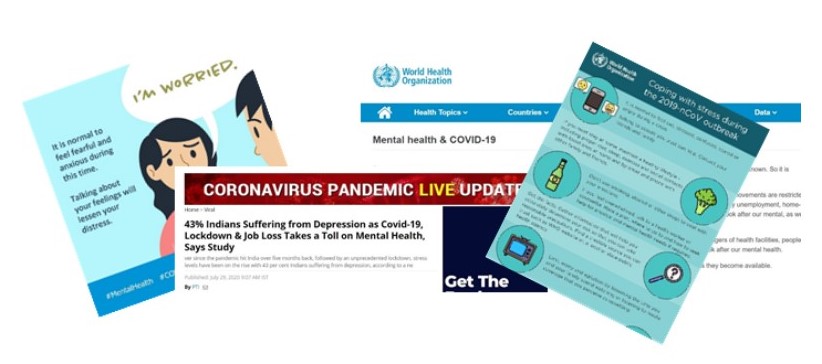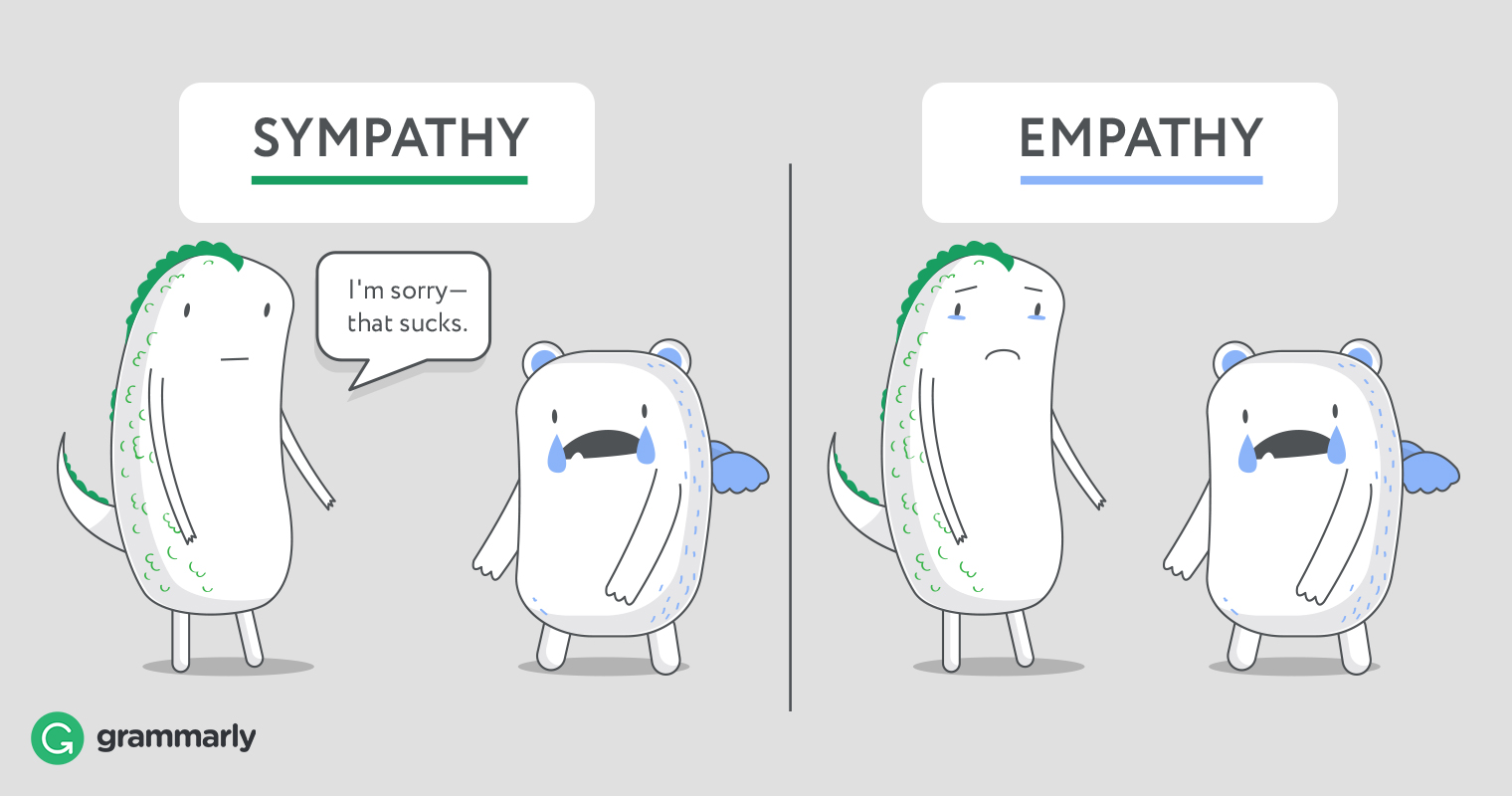8 Steps for the Mental Health 'Family and Friends’ Support Plan

Before I begin, there are two caveats: I am not a mental health professional and I struggle with mental health issues that might be considered to be "milder". I am presently on medication for anxiety and mild depression, and in the past have had thoughts of self-harm and suicide. Concurrently, as a part of my work, I have undergone several training sessions from trauma psychologists and I have provided basic counselling to child survivors of sexual abuse. Despite being an empath, I have fumbled my way in asking for support for my own mild mental health issues. Through this article, I reflect on my personal experiences and share some thoughts about how friends and family can respond to mental health issues. But before you read further I must point out that my thoughts shouldn’t be considered professional advice and if you are struggling, you should seek out professional help.
Information Overload
With the onslaught of the COVID-19 pandemic, lockdown and drastic changes to our lives, a lot of information around how to deal with mental health issues have started floating on the internet. A lot of them are helpful like suggestions of sleeping enough, exercising and many other suggestions. If you’re looking for personal help please do check them out. However, I found a dearth of information on how to be a support for others that went beyond the generic “be empathetic” advice.

So what do you do if a friend or a partner comes to you and says that they are feeling low, sad, depressed, anxious or just in plain words, terrible? Here are 8 practical steps that you can engage in :
1. Attend
2. Invite
3. Respect
4. Paraphrase
5. Listen
6. vAlidate
7. Normalise and empathise
8. Empower
In order words, just go on AIRPLANE mode. Ok – that’s a really silly acronym but mnemonics or acronyms help in being shortcuts to remembering.

Attend
Give the person who is speaking your full attention and provide nonverbal cues that respond to what they are saying verbally and nonverbally.
Nonverbal communication is one of the first things that people notice. Why do we hug? It is so that we can convey our care, love or empathy to someone. When speaking to someone going through mental health issues, be aware of your nonverbal communication. Attend to them. Which means, use your body to convey that you are there for them. Some people like being hugged or having their hands held – others do not. Be mindful. Ask for permission.
“Would you like it if I held your hand while you spoke?”
Look attentive and awake. Nod while they speak. These are simple things and we often do them unconsciously but nonverbal communication conveys so much to someone who is speaking.
Invite
Sometimes the person in front of you doesn't know how to start the conversation or what to say. Help them by asking open-ended questions.
It is often difficult for a person to ask for help but when they have reached out, there is an implicit ask for support. Sometimes the requirement is to simply be physically present. However, to begin with, you can start by inviting the person to a conversation like saying:
“Tell me what has been happening with you.” Or “How have you been dealing with the lockdown situation?”
Avoid “why” questions such as “Why are you feeling so low?”
A “why” question comes from a space of trying to get to a solution. While providing emotional support, sometimes the solution is simply the conversation and the “why” question can halt it. Allow the person to slowly get to answering ‘the why’ for themselves.
Respect
One of the foundational communication techniques is to show respect to the other person. Often we do not understand or agree with the other person or their values. Without knowing, we can be dismissive in our language and it is important to keep that in mind while speaking.
You can demonstrate respect by using descriptive rather than reductive language. One clear example is related to ableism where an example of respectful language would be “She walks with crutches” instead of saying “she is crippled.”
Similarly, instead of saying “you are being lazy”, you can say that “you seem to be having a difficult time doing physical things.”
Judgement when conversing with people who are struggling with mental health issues can worsen the person’s situation.
Paraphrase
To understand someone better, instead of asking the same question, which may signal that you weren’t paying attention, you can paraphrase what you understood.
If a friend says that she’s been talking to her friends but she still feels alone, you can clarify by asking, “So it seems that even though you are talking to your friends frequently, being unable to see your friends face-to-face makes you feel more alone, is that correct?”
Paraphrasing is a skill that can lead to asking questions, clarify statements or even provide suggestions or alternate ways of thinking for the person you are speaking with, without being confrontational.
Listen
When our loved ones come to us and say that they are unhappy or they are going through some difficulty, it is often tempting to jump in and offer a solution.
Instead of saying, “Why don’t you try…yoga/exercise/sleeping more (fill in the blanks),” sometimes you can sit in the silence. Silence, even when uncomfortable, can give the space to another to collect their thoughts, process and speak.
When you offer a suggestion, you are giving an opinion with only partial information no matter how close you are to the person; you are not them. A person knows their situation the best. Therefore, it is more helpful when you simply listen, and help them come up with a solution. And wait for them to ask you for help.
Validate
Validation is the act of stating that a person’s thoughts, feelings or behaviours are understandable. You may not agree with it, or find it justifiable but when you validate, it is a way to show support and understanding.
One of the lines in Demi Lovato’s song I love me is
'Cause I'm a black belt when I'm beating up on myself
But I'm an expert at giving love to somebody else
I am guilty of being more unkind to myself than others, which is why sometimes we need others to remind us. I am not being foolish/dumb/crazy (insert negative adjective) for thinking or feeling the way I do.
Validate the person’s thinking/feeling (within reason).
For example, you can say, “From what you are telling me, it seems to me as well that you felt very lonely in this situation.”
Now if the person says that “I think drinking copious amounts of alcohol is the only way to make my situation better”, I would advise to gently suggest alternative ways of thinking. But always remember “R” - whatever is said or suggested, it should be with respect.
Normalise and Empathise
Living with mental health issues often feels isolating and lonely. For me, it has always made me feel different. So when someone normalises how I’m feeling, it helps.
For example, if your friend tells you that they are tired even though they are getting enough sleep. You can reply, “Yes, this seems to be a common problem and can be connected to emotional issues. And it is a stressful time.”
Very simply, you want to reassure the person that they are not abnormal for what they are going through. This does not mean to downplay someone’s mental health.
Telling someone with clinical depression that “Yea, I’ve been so bummed out lately so I totally get you” is neither normalising nor empathetic because it equates feeling low with a mental illness.
Empathising is not sympathising. Here an example from Grammarly.

“I’m sorry that sucks for you” is sympathy. “I would have felt the same in your situation” is empathy. Empathetic response is so crucial to making someone feel less alone.
Empower
Saving the best for last – empower. This word is overused (but it went so well with my acronym that I could not help but use it here). By empowering someone I mean it is important to understand that a person’s own personal power, societal power, experience, capabilities and life choices are not understood better by anyone else but them. So it is crucial to let them, often help them, make their own decisions.
Unless it’s self-harm or suicide. Please take appropriate actions for severe and self-harming tendencies.
Go on AIRPLANE Mode
These were some of my tips that can help you become a better support. A lot of this is intuitive. Most of it is just based on respectful communication. And if there is one thing that COVID-19 has shown me, and hopefully many others, is that we are really in desperate need of more kindness, compassion and love all around – so go on AIRPLANE mode and show people around you some love.